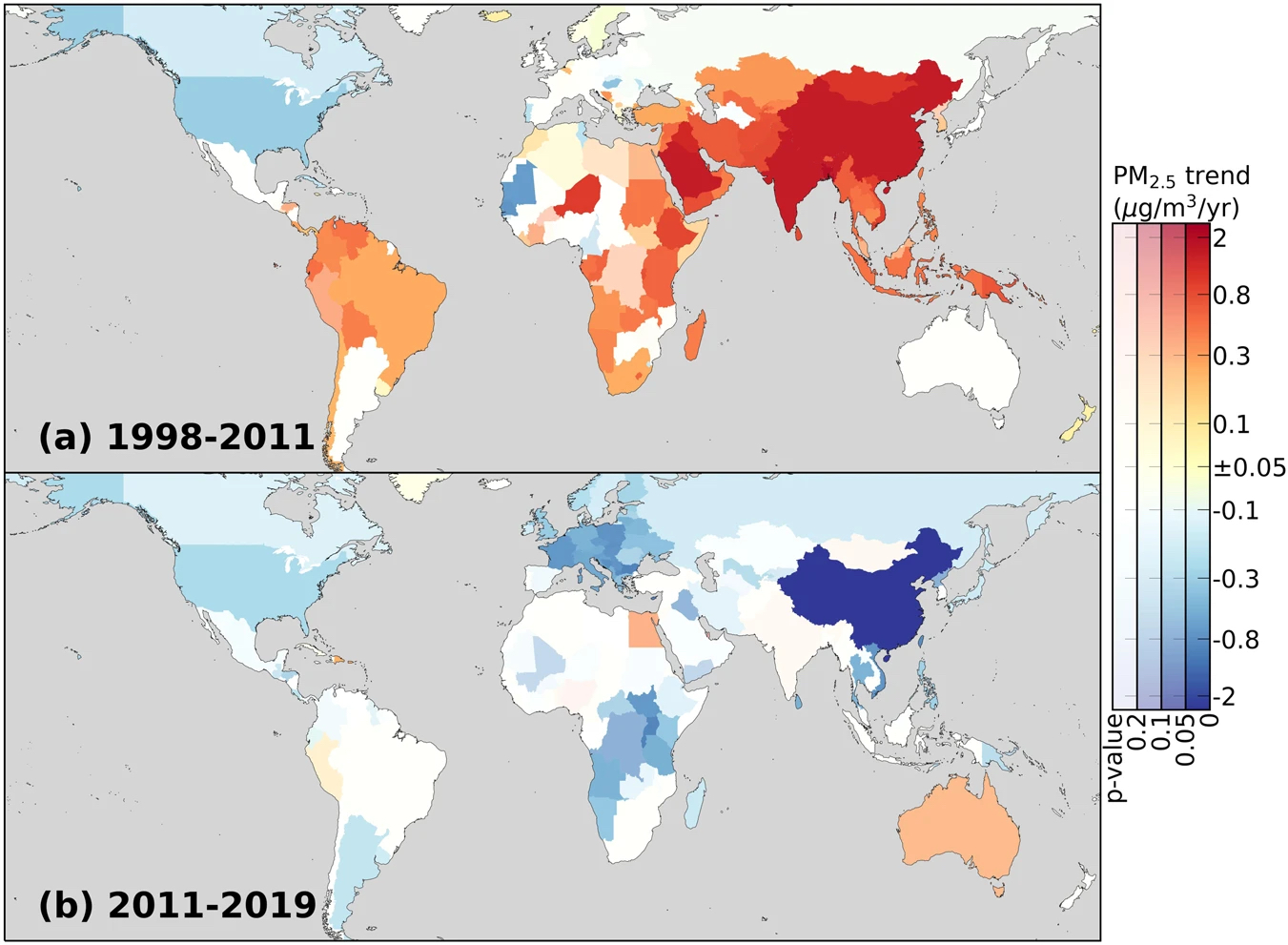A new study has found that exposure to one of the world’s most harmful air pollutants has decreased in recent years, but also highlighted the need to reduce it even further.
The researchers’ focus was on ambient fine particulate matter, or PM2.5, tiny particles that are 2.5 micrometers or smaller across that have become aerosolized. There are several sources of PM2.5, but it primarily stems from the burning of fossil fuels, and chemical reactions involving sulfates and nitrates in power plants and industry.
Using data estimates from global monitoring satellites and ground-based measurements of PM2.5 between 1998 and 2019, the study weighted these figures against population statistics to determine trends in PM2.5 exposure on both global and regional scales.
It was found that, between 1998 and 2011, global mean exposure to PM2.5 increased by 10.5 micrograms per cubic meter, with researchers attributing 69 percent of this change to India and China. However, the study also discovered that, after peaking in 2011, the trend reversed, with exposure steadily decreasing for the next eight years.
Although there have been worldwide efforts in recent years to reduce PM2.5 pollution, the regional data led the research team to conclude that exposure reductions in one particular country contributed the most to the overall global decrease in exposure.
“More than 90% of the reduction of global mean exposure from 2011 to 2019 is from China, according to our regional attribution,” said study author Chi Li in a statement.

The researchers found a general reversal of trends in PM2.5 air pollution around the world.
Image credit: Martin lab, Washington University in St. Louis
“This result was astonishing when it was derived, but it could be explained well by the rapid reduction of PM2.5 concentrations due to China’s mitigation efforts, which benefit nearly one-fifth of the global population.”
A reduction in exposure to air pollution being a good thing might seem obvious, but in this case, it could be particularly good news for human health.
According to the World Health Organization (WHO), PM2.5 is one of the world’s leading environmental risks to health. It can cause a multitude of health issues, including breathing problems, stroke, and high blood pressure, and has even been linked to low birth weight. As a result, the WHO estimated that ambient air pollutants like PM2.5 were responsible for an estimated 4.2 million premature deaths worldwide in 2019.
It also disproportionately affects specific regions, with 89 percent of ambient pollution-linked premature deaths occurring in low- and middle-income countries, primarily in Southeast Asia and the Western Pacific.
A reversal in the growth of PM2.5 exposure could help in reducing the number of health issues and premature deaths, although the researchers caution that the work to mitigate the impact of PM2.5 is far from over, with millions of people still affected and aging, growing populations.
“By combining PM2.5 data with health data and exposure-response models, we also revealed that despite the recent sustained reduction of global PM2.5 pollution, population aging and growth are now the main challenges in alleviating PM2.5 health impacts,” said Li.
“There is need to continue to sustain and develop global monitoring capabilities for PM2.5 both from satellite, but also from ground-based measurements,” added fellow study author Randall Martin.
“The successes in PM2.5 reductions serve to demonstrate the benefits of PM2.5 mitigation efforts, and to motivate further mitigation.”
The study is published in Nature Communications.
Source Link: The World Can Now Breathe Easier, But There’s Still Room To Improve